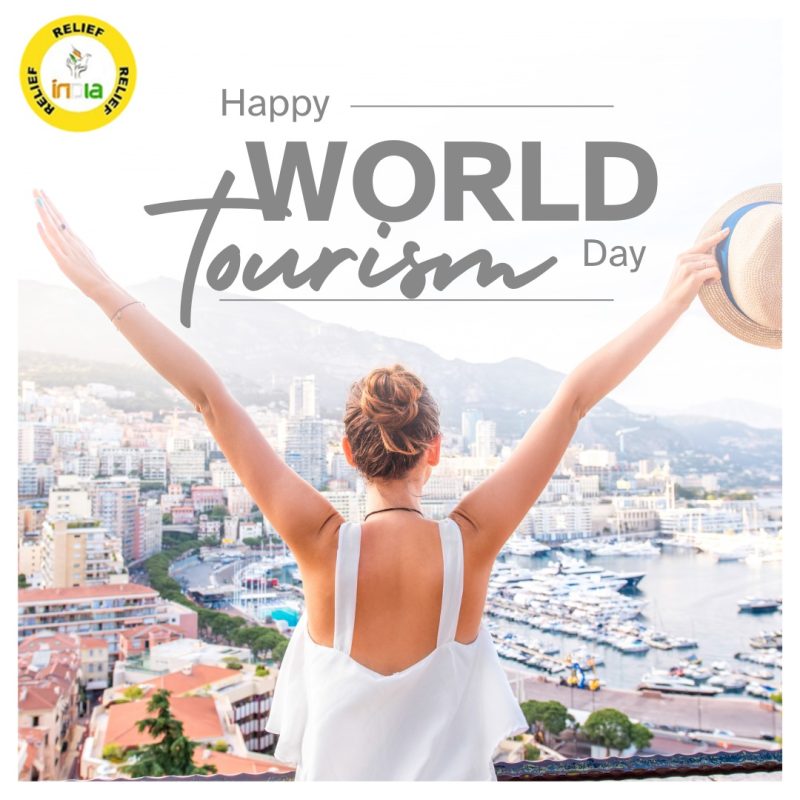World Tourism Day, marked every year on September 27, is more than just a date on the calendar—it’s a strategic opportunity for the global travel sector to underscore its impact on economic growth and cultural connectivity. Launched by the UN World Tourism Organization back in 1980, this initiative has become a key platform for highlighting tourism’s value in driving business, fostering cross-border collaboration, and championing sustainability. For 2025, the central theme is “Tourism and Sustainable Transformation.” In business terms, that’s about harnessing tourism as a catalyst for positive change, both for local communities and the environments they rely on. Relief India Trust (RIT), a proactive NGO working in India, exemplifies this approach. Rather than offering only lip service, RIT directly connects tourism with community development by implementing projects that empower underprivileged areas and build capacity from the ground up.
The Concept of World Tourism Day
World Tourism Day isn’t just a date on the calendar. World Tourism Day is a strategic opportunity for nations and industry stakeholders to align on tourism’s broader impact. Tourism isn’t limited to leisure; it drives economic growth, sustains cultural heritage, and, when managed responsibly, supports environmental goals. The UNWTO leads this initiative, bringing together government officials, business leaders, and local communities to address issues like over-tourism.
Looking ahead, the 2025 theme, “Tourism and Sustainable Transformation,” moves the conversation toward innovation and responsible growth. It’s about implementing eco-friendly operations, supporting local producers and artisans, and creating employment opportunities, especially in underserved areas. When the industry invests in local communities and practices, everyone benefits—businesses, workers, and travelers.
Education and awareness play a central role. By informing both operators and tourists about responsible practices, the sector can shift toward long-term sustainability instead of short-term gains. Ultimately, the goal is to strike a balance between expansion and stewardship.
World Tourism Day functions as a global platform for dialogue, collaboration, and actionable commitments. It inspires business leaders, governments, and citizens to prioritize sustainable strategies, resulting in positive, lasting change. Furthermore, tourism has the capacity to foster cross-cultural understanding and even contribute to conflict resolution—an often-overlooked business advantage in today’s interconnected world.
Relief India Trust put these principles into action, blending tourism with community development programs. Their work demonstrates how businesses and non-profits can collaborate for both commercial and social impact. Understanding these concepts is key for anyone aiming to lead or innovate in the global tourism sector.
How Relief India Trust Promotes World Tourism Day
Relief India Trust takes an active, hands-on approach to World Tourism Day, blending celebration with real impact. Instead of sticking to the usual awareness campaigns, we go straight to rural communities, running workshops that clearly explain how tourism can drive economic growth locally. These aren’t just theoretical sessions—RIT partners with local governments to set up eco-tourism projects, ensuring that communities directly benefit from the influx of visitors.
Storytelling is a big part of our strategy. RIT uses digital platforms and community events to highlight actual success stories—like locals who’ve learned hospitality skills or become professional guides through their initiatives. It’s a way to show measurable results and inspire wider participation.
For World Tourism Day 2025, sustainability is front and center. RIT is rolling out programs to tackle waste management at tourist sites and training local women and youth in handicraft production, connecting them with tourism markets. This not only creates new income streams but also strengthens community resilience.
RIT’s outreach doesn’t stop with adults. We’re running school awareness drives to build enthusiasm for responsible tourism among young people, laying the groundwork for long-term cultural and environmental stewardship.
Our organization’s approach is comprehensive: education, empowerment, and engagement, all working together. By turning big concepts into practical action, RIT positions World Tourism Day as a catalyst for sustainable change—helping communities preserve their heritage while welcoming growth through tourism.
Relief India Trust’s Community Empowerment Initiatives Tied to Tourism
Relief India Trust is making notable strides with its community empowerment strategy, fully aligned with World Tourism Day’s spirit. We’re developing homestay programs in underserved areas, where residents host visitors and provide authentic cultural experiences—far beyond the standard tourist fare. These programs aren’t just about hospitality; we build real skills, offering workshops in sustainable agriculture and artisan crafts to strengthen local economies.
When it comes to measuring results, RIT focuses on tangible outcomes: increased participant income and the conservation of natural sites. There’s a clear emphasis on sustainability, too. By collaborating with environmental consultants, we’re rolling out solar-powered infrastructure and other green tourism solutions, ensuring their approach is future-proof.
RIT’s business model doesn’t stop at tourism. Profits are reinvested into key community needs, specifically education and healthcare—funding schools and clinics to create a broader social impact. Annual tourism fairs act as a showcase, attracting international attention and enabling cross-cultural business opportunities.
Addressing market fluctuations, RIT is also tackling seasonal unemployment by promoting eco-tourism that operates year-round. This ensures steady economic transformation, in line with the 2025 agenda for sustainable growth.
Conclusion
Relief India Trust’s approach to World Tourism Day isn’t just symbolic—it’s a smart, strategic move. This year’s focus, “Tourism and Sustainable Transformation,” gives RIT a clear direction. We’re not just talking about change; we’re actively building it. Through practical initiatives like skills workshops and homestay programs, we’re opening doors for local communities—literally putting revenue and decision-making power in their hands.
What stands out here is RIT’s proactive communication. We don’t just inform; we engage, encouraging real participation and collaboration. That’s how you get buy-in that lasts, not just a flash in the pan. It’s a model that any business paying attention to sustainability should be watching.
Click on https://www.reliefindiatrust.org/ to read and know more about NGOs Relief India Trust NGO. Follow us on Facebook, Instagram, Twitter, and LinkedIn for daily updates. We update our various activities that help the poor better survive.

